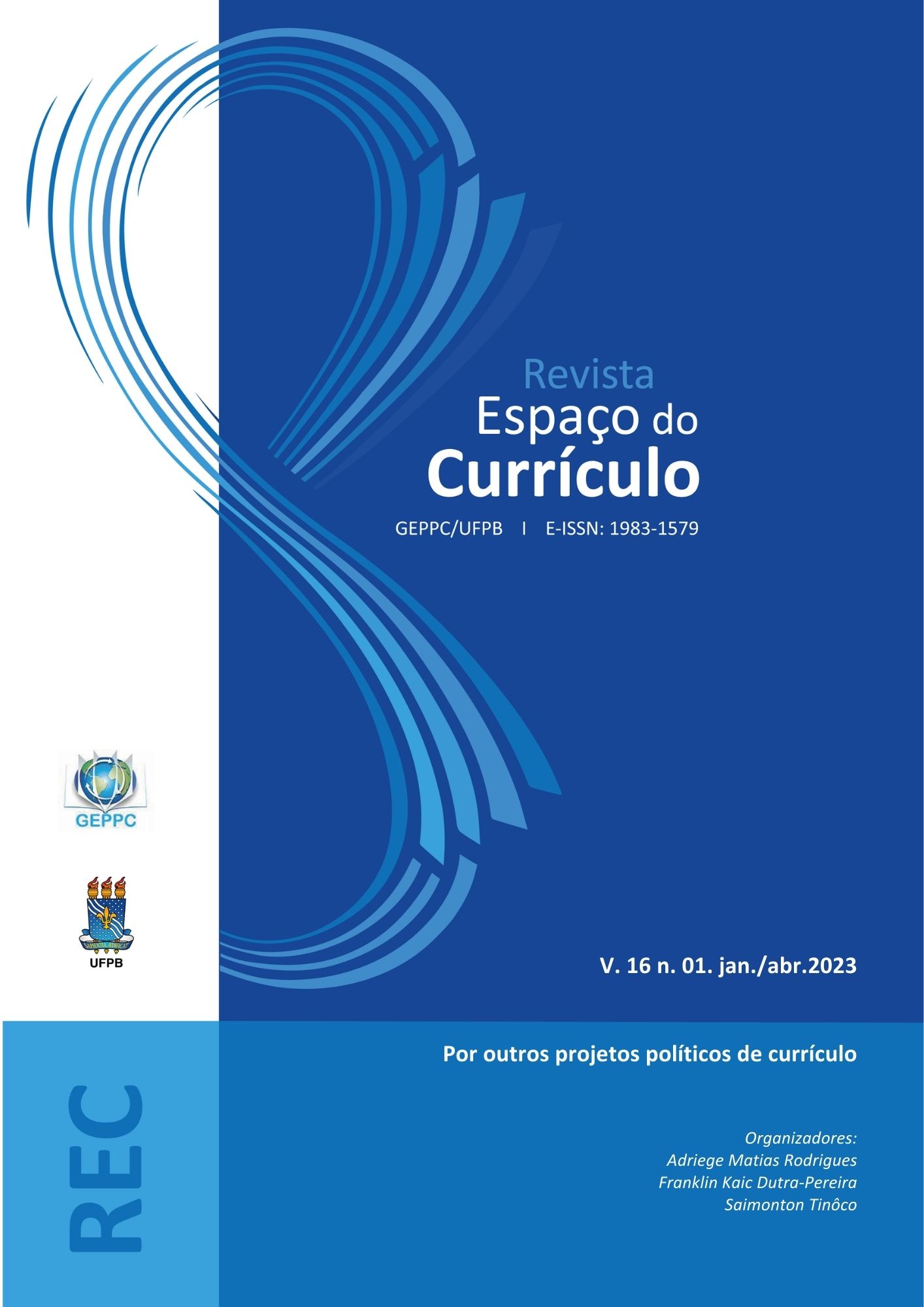DIDACTIC PROPOSAL FOR THE KANELA/MEMORTURÉ PEOPLE: an interdisciplinary approach based on generating themes of the Portuguese language curriculum component
an interdisciplinary approach based on generating themes of the Portuguese language curriculum component
DOI:
https://doi.org/10.15687/rec.v16i1.65481Keywords:
Indigenous school. Curriculum; InterdisciplinarityAbstract
The purpose of this article is to discuss the curricular document of indigenous school education and also to present a pedagogical proposal for teaching in the village of Escalvado, belonging to the Kanela/memortunré people, (MA). Based on the Portuguese Language curricular component and the use of generative/contextual themes proposed in the pedagogy of Paulo Freire(1976,1978), and Pimentel da Silva (2018, 2019,2020). This is a descriptive analytical work developed through action research, with a qualitative approach. For this, a reflection/discussion will be made on the type of bilingualism present in the schooling process of the Kanela/Memortumré people, and the space of the Portuguese language in this teaching, pointing out some guidelines for the practice of epistemic bilingualism.
Downloads
Metrics
References
SANTOS, Lilian Abram dos. Pedagogia da contextualização e interculturalidade na formação de professores indígenas: entrevista com Maria do Socorro Pimentel da Silva. Tellus, (42), 305–322, 2020. DOI: https://doi.org/10.20435/tellus.v0i42.681. Acesso em: 11 nov 2022.
ALBUQUERQUE, Francisco Edviges. A educação escolar Apinayé na perspectiva bilíngue e intercultural. Revista Brasileira de Pós-Graduação, v. 8, n. 1, 31 dez. 2011.
BORTONI-RICARDO, Stella Maris. Manual de sociolinguística. São Paulo: Contexto, 2014.
BAKHTIN, Mikhail. Estética da criação verbal. 3. ed. São Paulo: Martins Fontes, 2003 [1979]. Tradução: Paulo Bezerra.
BRASIL. Ministério da Educação. Base Nacional Comum Curricular. Brasília, 2018.
CALVET, Loiuis-Jean. As Políticas Linguísticas. São Paulo: Parábola, IPOL, 2007
FREIRE, Paulo. Educação como prática da liberdade. Rio de Janeiro: Paz e Terra, 1976.
FREIRE, Paulo. Pedagogia do oprimido. Rio de Janeiro: Paz e Terra, 1978.
GERALDI, João Wanderley. O ensino de língua portuguesa e a Base Nacional Comum Curricular. Revista Retratos da Escola, Brasília, v. 9, n. 17, p. 381-396, jul./dez. 2015. Disponível em: < https://retratosdaescola.emnuvens.com.br/rde/article/view/587. Acesso em: 11 nov 2022.
HISSA, Débora Liberato Arruda, SOUSA. Nágila. A Pedagogia dos Multiletramentos e a BNCC de Língua Portuguesa: diálogos entre textos. Revista (Con)Textos Linguísticos, Vitória, v. 14, n. 29, p. 565-583, 2020 | e-ISSN 1982-291X | ISSN 2317-3475
LIMA, Antônio Carlos Santos de; SOUTO MAIOR, Rita de Cássia. Responsividade e Discursos Envolventes: observando o ensino e aprendizagem de Língua Portuguesa. Eutomia, V.01, N.9, 2012. Disponível em: https://periodicos.ufpe.br/revistas/EUTOMIA/article/view/957. Acesso em: 11 nov 2022.
PIMENTEL-DA-SILVA. Maria do Socorro. Políticas de Retomada de Línguas Indígenas em Diferentes Contextos Epistêmicos. Dossiê Práticas de bem viver: diálogos possíveis entre o Núcleo Takinahakỹ e Milpas Educativas Revista Articulando e Const. Saberes, 2018, v.4: DOI:10.5216/racs.v4.59089.
SIMAS, Hellen Picanço Simas. PEREIRA, Regina Celi Mendes Pereira. Política Linguística Nacional na Escola Yanomami. Revista do GELNE, Natal/RN, Vol. 18 - Número 1: 23-50. 2016
MARANHÃO. Documento curricular do território maranhense: Ensino Médio/Maranhão. São Luís: Secretaria de Estado da Educação, 2022.
MARANHÃO. Lei nº 11.638, de 23 de dezembro de 2021. Estatuto Estadual dos Povos Indígenas e cria o Sistema Estadual de Proteção aos Indígenas. Disponível em: https://www.legisweb.com.br/legislacao/?id=425627.
WALSH, Catherine. Interculturalidad, estado, sociedad: luchas (de)coloniales de nuestra época. Primera edición. Universidad Andina Simon Bolivar / Ediciones Abya-Yala, Quito, 2009.
Downloads
Published
How to Cite
Issue
Section
License
Copyright (c) 2023 Curriculum Space Journal

This work is licensed under a Creative Commons Attribution 4.0 International License.
By submitting an article to Curriculum Space Journal (CSJ) and having it approved, the authors agree to assign, without remuneration, the following rights to Curriculum Space Journal: first publication rights and permission for CSJ to redistribute this article. article and its metadata to the indexing and reference services that its editors deem appropriate.
















